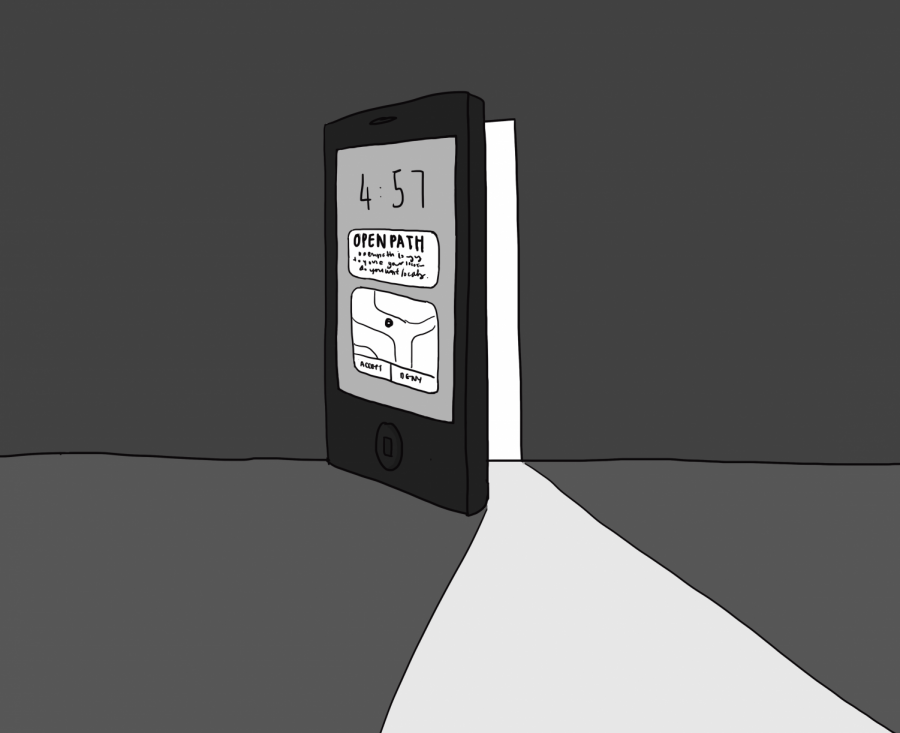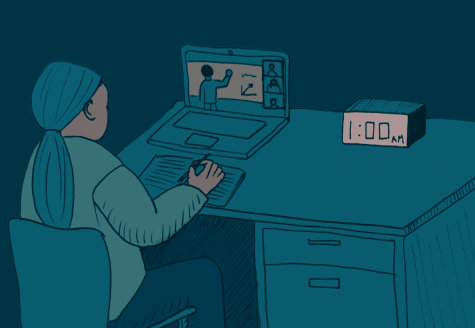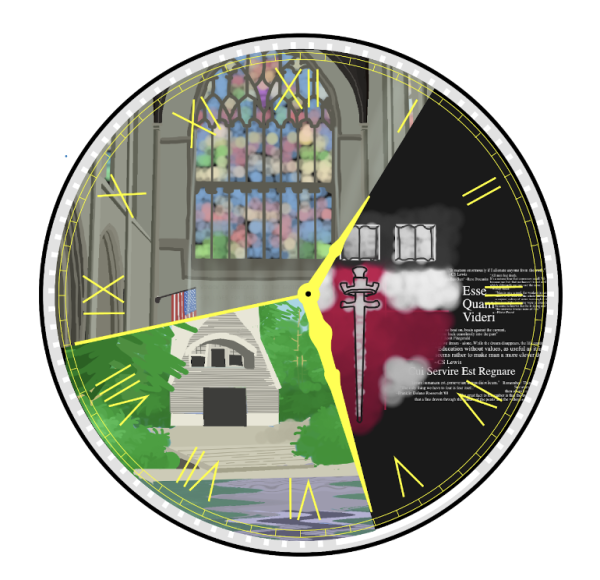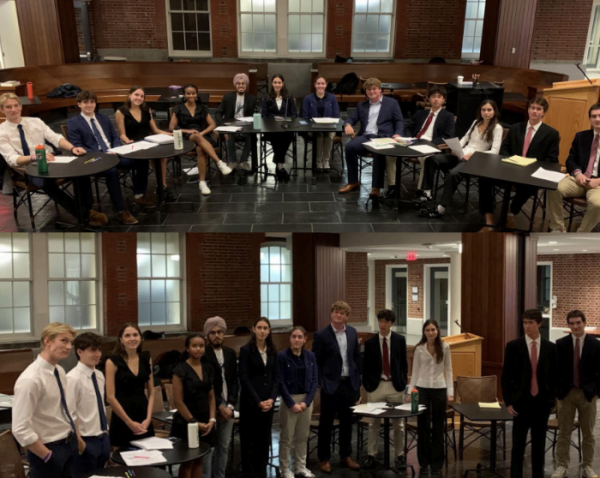Groton Switches to New Security System
When students arrived on the Circle this fall, they were greeted not by keypads on their dormitory entrances, but by new smooth black pads with blinking white lights. Gone were the numbers; a pixelated circle replaced them. Instead of typing in a four-digit code, students pulled out their phones and gently tapped the white dots to unlock doors.
On July 31, Openpath was installed on all dorms and buildings, a system replacing the old keypad system and marking a landmark change in Groton’s security capabilities. A California startup specializing in access control technology, Openpath partnered with the Information Technology department and Buildings and Grounds (B&G) to establish a safer, phone-compatible system on campus.
Chief Technology Officer Elizabeth Preston says that the Deans’ Office has expressed interest in a system like Openpath for the past few years.
“We first started looking for vendors in 2016 when [Dean of Students Michael O’Donnell] wanted to find an easier way to access dorms through phones. Two vendors initially proposed solutions but their technologies were pretty wonky. And in our testing, the IT department determined that the vendors’ systems were not reliable enough,” she explains.
After two years, Ms. Preston discovered Openpath, a company that was offering both secure and phone-based access.
“We invited [the Openpath team] to campus in 2018 because Groton was their first K-12 installation,” she says. “After starting the project in June of 2019, our immediate goal was to get the summer camp dorms online on Openpath. Once those dorms were equipped, we worked on completing the rest of campus with the help of B&G.”
Openpath, which enables a cloud-based, mobile credential access system, is safer and more secure than the previous keypad system. Whereas the prior keypad was unlocked by a simple four-digit code that never changed, Openpath customizes access to each and every individual via Bluetooth software. When a user comes within the Bluetooth range of an Openpath lock, their phone communicates with the lock and unlocks the door if and only if that person has the proper access credentials.
In response to this new system, there were both positive and negative reviews. Per a school-wide survey, while most students agreed that Openpath was more secure than the old keypad system, 85.5% of students ultimately preferred the keypads because of various other reasons, namely efficiency and convenience.
When asked on a scale from one to ten how secure Openpath was, the most common response from survey respondents was 8, and approximately half reported scores between 8 and 10.
Regarding efficiency and convenience, students expressed complaints in having to carry their phones around everywhere, occasional lags, battery drainage, and location tracking. In addition to these provided answer choices, other survey entries to the question “What are some reasons you do not like using Openpath?” were “Openpath is so unreliable,” “If your phone dies, you cannot access dorms or any buildings,” and “Half the time it just doesn’t work,” for example.
Tyler Weisberg ’22 commented, “Openpath can be quite slow and inconvenient at times, especially when I have to take my phone to practices and games.”
Although phones ask users to keep Location Services on at all times, Openpath does not and cannot continuously track students’ whereabouts. According to its website, the reason Location Services must always be on is to activate Bluetooth Low Energy, which iOS and Android consider a part of Location Services.
Openpath does not log location data but rather records Bluetooth interactions. While the Global Positioning System (GPS) uses microwaves that travel from multiple satellites in space to GPS receivers on phones in order to pinpoint the exact location, Bluetooth uses radio waves to link phones and other devices on a local level. GPS connections are device-to-satellite; Bluetooth connections are device-to-device. Therefore, Openpath does not have the ability to actively track one’s physical location. Instead, it logs the local connections between phones and keypads.
Mr. O’Donnell said, “The Deans’ Office is responsible for issuing and managing student credentials in Openpath. We are able to view when those credentials are used to access buildings. We do not, and cannot, see [students’ locations].”
“The primary goal of implementing Openpath was not to monitor students’ whereabouts. More importantly, Openpath boosts campus safety and allows for lockdown capabilities that grant the school greater flexibility in emergency situations,” Ms. Preston added.
Openpath provides a secure mode of access to the dorms, AC, Schoolhouse, and other important buildings. Despite the significant boost in security, some still want Groton to revert back to the keypad system for the sake of efficiency and convenience. Nevertheless, the IT department will continue its cooperation with Openpath in expediting the entry process.
“We will give feedback and work with Openpath to make the system as easy and smooth as possible,” Ms. Preston said.











